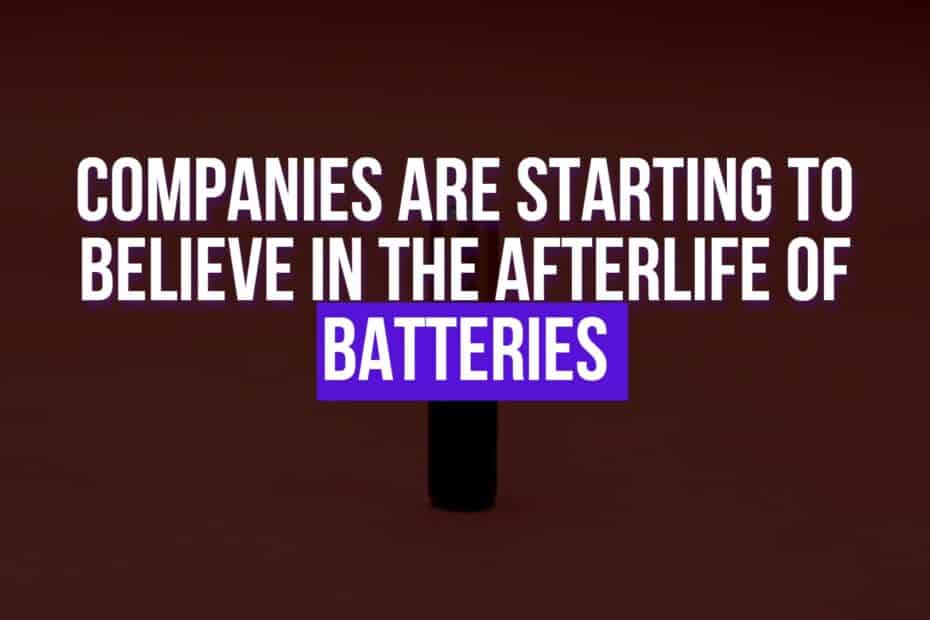Electric vehicles are predicted to be the future but, batteries don’t last forever. Fortunately, though energy-intensive and challenging, recycling is possible.
A significant number of electric vehicles have been on the road for over a decade now. With new regulations on carbon dioxide emissions, an effort to reduce ecological damage and consumer changing habits is predicted to rapidly increase in the future. Some view this as a great development, others, however, aren’t so sure.

What Happens to EVs Battery Packs When they Drain
One of the reasons why the idea of switching to electric vehicles is not welcomed by everyone is the fact that its boom will also create a greater demand for power. This means that there will also be an increased need for batteries.
While that may not be the main problem here, but the issue of what to do with the vehicle’s battery pack when its days are over is what the industry needs to think about. If not dealt with appropriately, use EV batteries could turn to mountains of waste. But, are batteries still usable even if their motoring days are behind them? Is there a battery afterlife?
Well, there are possible options that can be considered – either reuse or recycle them. Of course, this will still depend on several factors, including the battery’s overall state and the requirements of the company that deals with it.
Recycling used batteries
When a battery cannot hold a charge that’s sufficient enough to run an electric vehicle motor, recycling is one of the best options to consider. This involves dismantling the battery and obtaining usable materials like cobalt, nickel, and lithium. These can be used either in the production of a new battery or other manufacturing processes.
Not all batteries are easy to dismantle, especially the really old ones. Some battery packs are difficult to open up, so it’s extra challenging for recyclers. Harvesting useful parts and materials from used batteries remain risky and tedious.
Therefore, in order to recycle batteries from electronic cars to the scale that the growing EV market demands, it’s important for the industry to solve some main challenges in the process. Today’s batteries are not designed for quick and easy disassembly. They are not all made in a specific way to its hard to automate the process of taking them apart.
Dismantling used EV batteries involves a lot of work, especially since the types of adhesives and sealants used in these kinds of power storage are extremely strong. Also, batteries could explode and when they do, they can create toxic gases. Also, if not properly handled, the heavy metal in the battery could lead to water and soil contamination.
Some proposed the use of robotic disassembly to avoid the risk posed to human workers. It could also make the entire process faster than manual dismantling, which could be beneficial in handling the influx of batteries in the future.
However, the problem with this proposed solution is that robots will require more standardized batteries to work at their full potential. Easier dismantling could result in extracting more valuable and purer materials from batteries that can be used to make new batteries or sold.

Reusing old batteries
Just like your phone battery, EV batteries also degrade over time. How long they last vary, depending on several factors, including the model of car it’s in, its age, and how long they’re charged.
When the current batteries’ charge capacity falls below a specific threshold, they may not have sufficient power to drive a vehicle motor anymore, but it doesn’t mean they’re useless. The battery still has uses. In fact, it was found in a study that used batteries can still be used for renewable energy facilities.
However, this just raised more questions as if it would be practically viable to remove used batteries from vehicles and repurpose them. Some are also wondering whether batteries from different vehicles could be installed together.
Many stakeholders would definitely need to be part of this. An electric vehicle manufacturer, lithium-ion maker, and a solar project developer would want to be involved in the process, as well as the power electronics experts.
Eventually, if automakers effectively lease the battery instead of selling it with the rest of the vehicle, the cost of electric vehicles will soon drop. Companies are also thinking about establishing services for battery replacement in their sales price. Battery manufacturers and companies that use batteries are now beginning to realize the immense financial potential contained in the battery packs they install in their cars.
New developments in battery technology
Often, manufacturers offer an 8-year warranty, which will increase as exciting innovations are introduced and advancements in battery technology make them more robust and improve their ability to hold a charge. Thanks to new developments in the industry, the chemical makeup of batteries is also set to improve so they remain working and healthy for longer.
Just recently, Chinese producers, Contemporary Amperex Technology (CATL) claimed that they developed a new battery that can power a vehicle for over a million miles over a sixteen-year lifespan. Aside from that, they said that the battery can also be reused even after its lifespan.
The majority of batteries for cars provide warranties for sixty-thousand to 150 thousand miles over a 3 to 8-year period. But, this new development is an impressive improvement in battery life.

Conclusion
Just like the batteries in gadgets like laptops and mobile phones, EV batteries have a limited life. But, because they could still hold a charge after being used for vehicles, there is still a secondary market for used batteries for other uses. Once such uses have expired, batteries should not end up in landfills. They can still be recycled to valuable materials that can be reused, such as nickel, cobalt, and lithium. Several companies are also working on the technology so even used batteries are not wasted and so they have a long lifespan.
